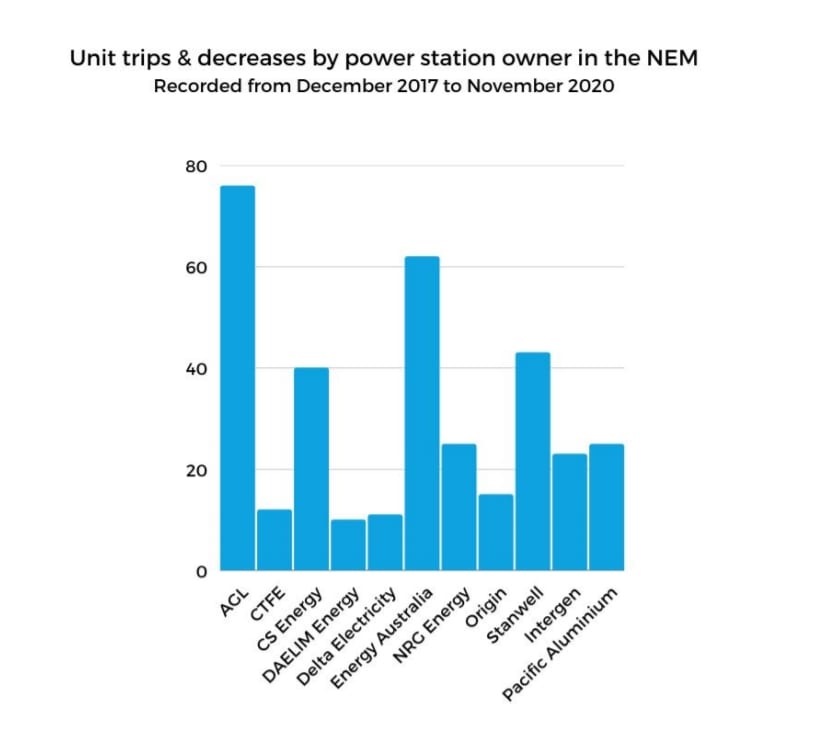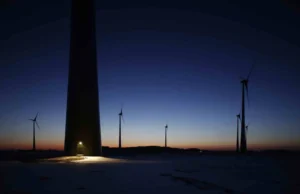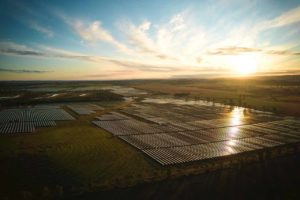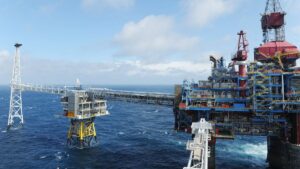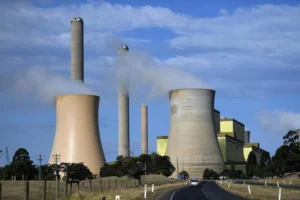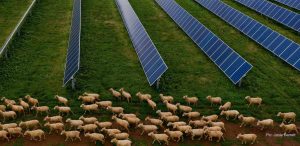A new project launched by the Australia Beyond Coal campaign aims to quantify in great detail the variety of impacts relating to Australia’s uniquely significant fleet of coal-fired power stations.
It finds that AGL’s coal-fired power stations are responsible for the vast majority of licence breaches, breakdowns and pollution within the National Electricity Market (NEM). AGL’s Bayswater, Loy Yang A and Liddell plants were found to have breached their licence agreements a total of 111 times since 2015 (Loy Yang B did not record any breaches in the period studied).
 “Shockingly, Australia has weaker coal burning pollution laws than the EU, the USA and China,” said Greenpeace CEO David Ritter. Greenpeace is among several environmental groups behind the alliance.
“Shockingly, Australia has weaker coal burning pollution laws than the EU, the USA and China,” said Greenpeace CEO David Ritter. Greenpeace is among several environmental groups behind the alliance.
“Our legal protections are far too weak to safeguard public health and the environment, but even so, there are still numerous breaches of the standards that do exist”. Air pollution impacts and greenhouse gas impacts are collated in detail in the report, with AGL dominating the data for environmental and health impacts to communities.
Along with Greenpeace, the Australia Beyond Coal alliance is comprised of Environment Victoria, Friends of the Earth Australia, the Nature Conservation Council, the Queensland Conservation Council, Climate Action Network Australia and the Sunrise Project.
The various impacts of coal-fired power are not countered by the quality of the power station – the project finds that planned and unplanned outages have plagued Australia’s coal plants, again with AGL leading the count between December 2017 and November 2020:
An AGL spokesperson told RenewEconomy that the data collated in the Australia Beyond Coal report are contested. “We believe that the data provided in this report is inaccurate and incomplete. Several QLD power stations are not included, it is not proportionate to the output into the National Energy Market and nor is a consistent methodology used”, with regard to the section that examines licence breaches”, they said. This is on the grounds of variations between counting methodologies between states and proportionate comparisons to NEM contribution. “AGL works cooperatively with all environmental agencies to ensure we comply with all of our environmental and regulatory obligations”.
AGL Energy has faced intense pressure over recent years due to its heavy reliance on aging coal-fired power stations. After a period of relative ambition, the company essentially paused its transition under the leadership of CEO Brett Redman, and is now said to be reconsidering this position. “As we’ve said for some time, it is the speed with which those forces change that will dictate the velocity of our strategy. What we have seen in recent months is an acceleration of all of those forces beyond what we anticipated.”
AGL has struggled with plans to retire its coal capacity, with the closure of Liddell creating a controversy as the federal government tried to delay that closure and then threatening to build a gas plant as a replacement. The company has invested in 2.5 gigawatts of renewable capacity and has proposed 850 megawatts of grid-scale batteries, in addition to offering home batteries and deals for electric vehicle owners. However, the company remains Australia’s most significant emitter of greenhouse gas emissions from coal, and has no clear plans to retire high-pollution facilities prior to their retirement dates.
The company recently saw a $2.7 billion write-down, due partly to offtake agreements with older wind farms at high prices. They have also announced plans to diversify their business, and are likely to face stiff competition for drawing value from new battery installations in New South Wales, in an increasingly crowded market.
Australia’s federal government recently released projections of Australia’s electricity sector emissions that seem to assume a faster exit of coal-fired power stations. It is likely that the rate at which these facilities are closed will be a key part of debate on Australia’s electricity sector within the coming years.
Edit 12/02/2021 – Added response from AGL spokesperson


